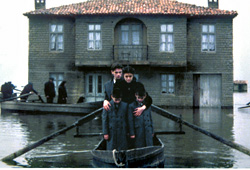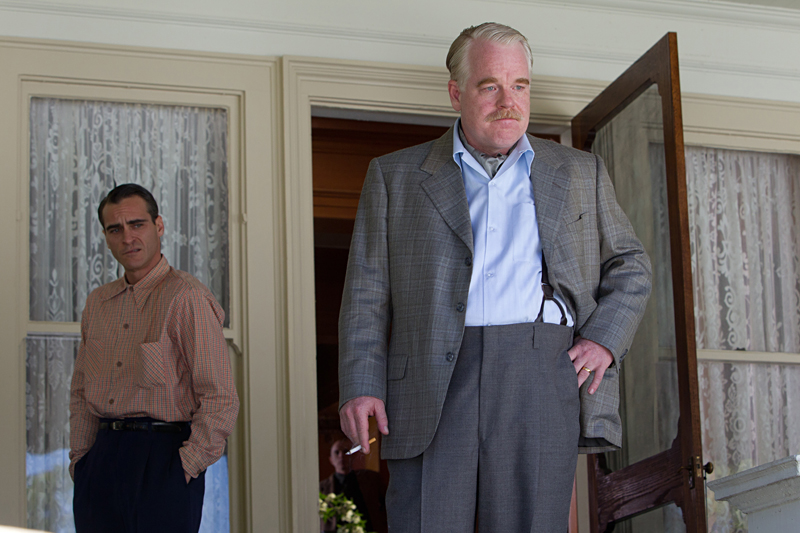Shot length might someday be used as a kind of cultural palmistry: American filmmakers favor unambiguous brevity, but for a certain breed of cineaste in Western Europe, the syntax of the long, spatially expressive tracking sequence is the way movie time should be constructed. For Greek auteur Theo Angelopoulos, his stock-in-trade megashot is a translation of history into visual experience: Time grows gargantuan, landscapes change, masses of people engage in epochal social phenomena.
Yet Meadow is lighter and more musical and folktale-ish than some of Angelopoulos’ past monuments. It’s 1919, and a crowd of émigré Greeks returns from the nightmare of Odessa; among them, a family with one son brings a young orphan girl, Eleni. Years pass in an unceremonious cut; a near-comatose teenage Eleni is brought home after having given up illegitimate twins. Another cut, and the young woman (Alexandra Aidini) is fleeing her own wedding—bride not to the grown son Alexis, who loves her and helps her escape, but to her old stepfather. Eventually, the tale morphs from a romance to an arc of feminine subjugation.
Literally trailing after these scrambling souls as they follow one another into the crossfire of the midcentury, Angelopoulos’ hold-your-breath mise-en-scène and elliptical mode keep the mad tragic-Greek drama at a chilling, dreamy distance. You can read an ironic objectivity into this contrast, but Angelopoulos is extravagantly earnest. The ordinary construct of intimacy is swapped, profitably, for a sense of fluid anima, as in an uncut, nine-minute scene that begins with an impromptu beer-hall dance and climaxes with a death. It’s Homeric filmmaking, uniquely worthy of the word. (NR)









